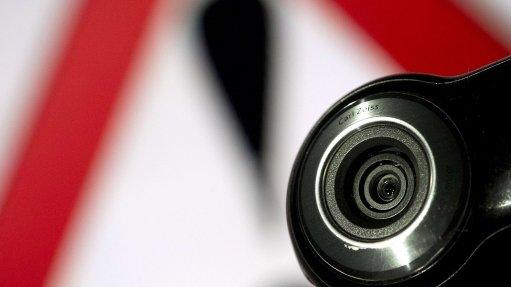Dark net 'used by tens of thousands of paedophiles'
- Published
The US police battling against child abusers on the internet (2014)
Tens of thousands of paedophiles are using the so-called dark net to trade images of sexual abuse, an investigation by BBC News indicates.
One site receives as many as 500 page views per second, its founder says.
Figures from another site suggest Brits are heavily involved in producing and distributing illegal obscene images.
Britain's National Crime Agency warned in its 2014 threat assessment that abusers were turning to anonymous sites and encryption technology.
The dark net is the term used to refer to parts of the internet that are hidden and can be hard to access without special software.
One of the most popular products used to access such areas is called the TorBrowser.
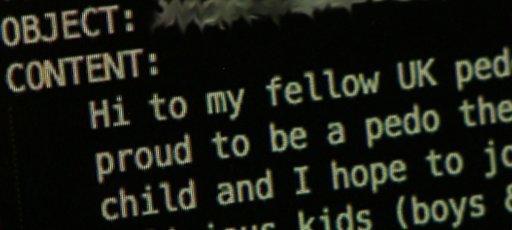
Paedophiles use chat rooms on the dark net to share illegal images
It allows people to use Tor, an "onion-routing" system which makes a PC's net address untraceable by bouncing the encrypted data it sends through several randomly selected computer servers on a volunteer network - each of which removes a level of encryption - before it reaches its destination.
There are also many hidden sites on the network ending in the .onion suffix, which cannot be found using Google or other regular search engines.
Tor was first created by the US military but is now also used by pro-democracy campaigners, whistleblowers and journalists operating under repressive regimes.
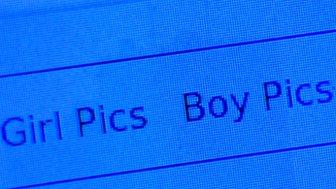
Many of the illegal dark net websites cannot be found using a standard internet search
It was used by activists during the Arab Spring to avoid detection.
But criminals are also taking advantage of its anonymity.
Hidden trades
BBC News contacted a man who, until recently, ran a site on the dark net for paedophiles to swap images of child sexual abuse.
He used untraceable email and encrypted messages. There's no way of confirming his identity but he has provided proof that he was owner of the site, which stopped operating in May.
He admitted he was an active paedophile.
"We had over 40,000 user accounts on the site. We used to get sometimes 500 page views per second. My own collection is 12 gigabytes," he wrote.
He claimed that, until he closed the site, the number of users was still growing.
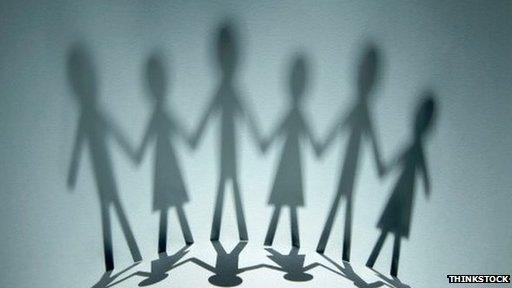
Undercover officers sometimes pose as paedophiles to tempt child abusers to reveal their identity
"There certainly are more paedophiles coming to the dark net. I don't know if these new users are brand new paedophiles discovering child porn for the first time or if these are people who used to swap on the 'clear net' but found Tor which is much safer."
As for his personal safety, he was confident police couldn't find him.
"I don't want to go into details about my security set-up but it is designed with many layers to keep me safe from even the most capable adversaries in the world," he said.
Tackling Tor
The threat posed by these kinds of sites has been recognised by governments around the world.
In November, the British prime minister, David Cameron, held a summit at Downing Street on online safety.
He said he expected the spy agencies and GCHQ to lend their skills to the police.
"That expertise is going to be brought to bear, to go after these revolting people sharing these images on the dark net," he said.
But IT experts are divided as to whether it's possible to create a workable "backdoor" into Tor, which would allow users to be identified.
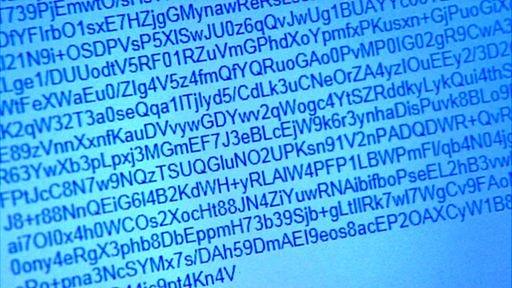
Paedophiles encrypt the data they send to help protect their identities
Several countries' police forces are working together, under the banner of The Virtual Global Taskforce, to tackle online child exploitation worldwide.
The body's chairman, Ian Quinn, said Tor was an emerging threat.
"It's certainly a challenge, I'm hesitant to describe law enforcement techniques but it's something we're definitely keeping an eye on."
When asked if paedophiles were indeed moving from the conventional internet to the dark net, he replied: "I think you have to suppose that's the case, based on the investigations that we do."
But some security specialists believe there are innovative ways to unmask the users of paedophile sites.
Chat rooms
Greg Virgin runs software company Redjack and is helping the human rights group International Justice Mission, which campaigns against child abuse.
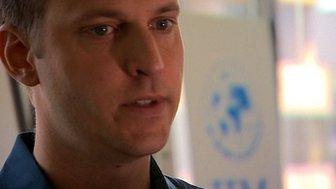
Greg Virgin has investigated the scale of content being traded on hidden paedophile sites
He uses complex algorithms to mine dark net chat rooms for data.
"The typical law enforcement approaches to finding out what computers are being used are no longer available," he said.
But by analysing the traffic on one particular site, he says he's able to find out much more about its users.
Of more than 10,000 users, he said 2,000 were "producers of content", meaning child abusers who post pictures of that abuse on the site.
Of these, 20% were from the UK, he said.
In several postings users refer to living in particular parts of the UK and ask to arrange meetings.
"They actually divide themselves up into regions - the South West, South East, North East and London," Mr Virgin observed.

US investigators say the amount of child abuse imagery on the net is growing rapidly
He added the site was actually encouraging abuse.
"It's a guide for paedophiles and a support system for paedophiles to get more extreme."
Dark net disgust
The website DeepDotWeb.com reports on dark net developments.
"On Tor I know about probably 20 to 50 sites from looking at public directories but I guess there are more that are not as public," said its founder, who wanted to remain anonymous.
He added that most deep net users were "disgusted" by the paedophile sites.
"The 'deep web' is still, just an open reflection of the real world thanks to its anonymous conduct, so this problem needs to be tackled in the real world.
"The 'deep web' is nothing more than a peep hole into this unfortunate reality."
- Published18 June 2014
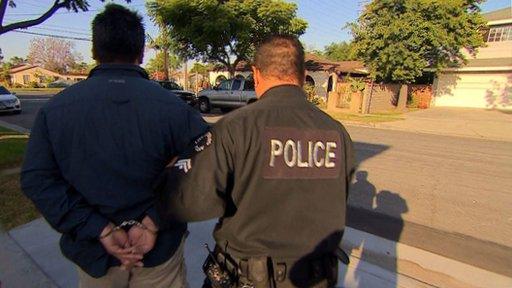
- Published5 August 2013

- Published2 July 2013
